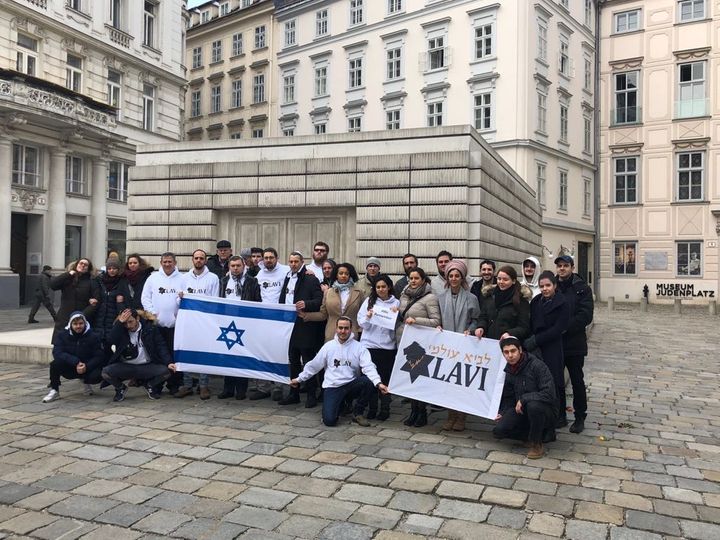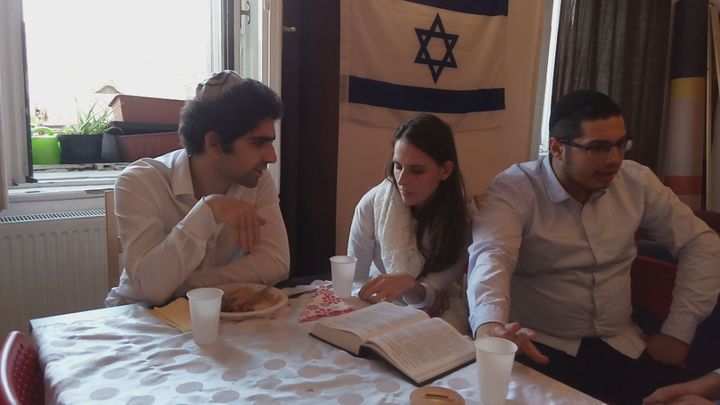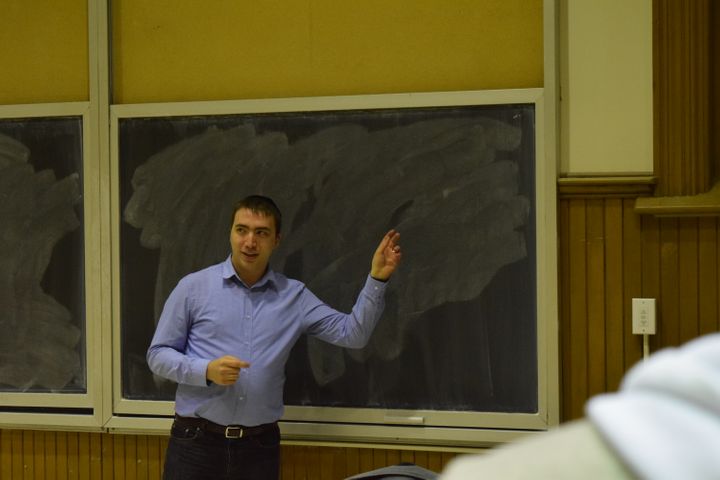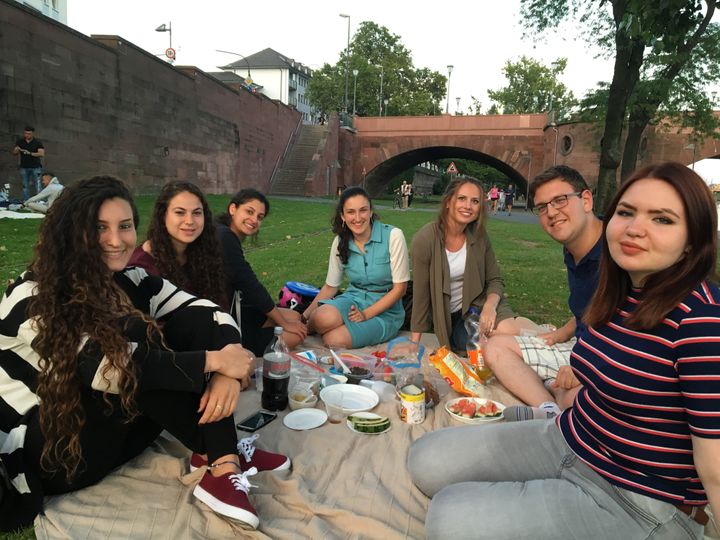Bringing creative and intellectual dialogue to students and young adults
While Israelis are zigzagging between celebrating a 70th Independence Day birthday while coping with attempted terrorist attacks, a group of young Israelis are waging a different battle, working to guarantee that other young Jews, in Europe and North America, don’t lose their tenuous connection to the Jewish people, religion or homeland.
Rikki Zalut of Efrat, born to a British mother and American father, following a common post-high school pattern of a year of Torah study, serving in the army and back-packing in Central America, was seeking something different before beginning university studies. In 2016 she became a shlicha – emissary – through LAVI (“lion“ in Hebrew), and went to work with college students in Frankfurt, Germany.
“I never thought I’d go to Germany, it’s so taboo. One of the students we met was the grandson of Holocaust survivors who had returned to Germany after the Shoah. His grandmother was still alive …when you talk to them, they say they love it, that they know there’s anti-Semitism, but they’re happy with their lives and nothing bad is happening to them right now.
“The grandfather of the girl I was on shlichut with was originally from Frankfurt, and we went to the street where he grew up. It was emotional for her, to think about it, that 70 years ago her grandfather lived there and ran away and she is here now to bring Jewish people back to Judaism. They tried to kill us, didn’t succeed, we’re still here.”
LAVI Houses in Europe
LAVI is an educational venture that was established in 2012, in Jerusalem, by Ilan Roth, a man with 32 years of experience in informal Jewish and Zionist education in Israel and the Diaspora. He says he founded Lavi Olami, ‘Because I can’t sleep at night knowing that every moment another young Jewish man or woman is leaving Judaism. Some connect to the Jewish people and Israel through the study of Judaism or of Hebrew, and some connect through their work in hasbara and the struggle against anti-Semitism.’
Lavi trains shlichim in Israel, and it helps students cope with anti-Semitism through LAVI Houses (Beit Lavi) in Amsterdam, Budapest, Berlin, Dusseldorf, and Frankfurt. LAVI also operates in England, Vienna, Moscow, Kiev, and Rome.
According to statistics quoted by LAVI, assimilation and intermarriage in Europe ranges from 40-80%, and 50% of students on university campuses in France, the UK, and the US encountered antisemitism in recent years. 85% of young Jews in Europe feel that they are in danger when wearing a kippa or Star of David in public.
Two of the cornerstones of LAVI House in Europe are Shabbat and the Beit Midrash. The shlichim also initiate one-on-one learning with members of the community in cafes or in their homes.
Anna (not her real name) of Frankfurt came to LAVI House when she was 18. She came from an assimilated family and had little connection to anything Jewish. Today she observes Shabbat, loves Israel, and only wants to marry a man who is Jewish.
“My first Shabbat in Beit LAVI was the first time I went to a synagogue, heard my first Kiddush, ate traditional Jewish foods, smelled fresh-baked challah, and listened to the stirring Shabbat songs. It changed the course of my life.”
Another young woman, says Rikki, “Came every Shabbat because she felt there must be a bigger Jewish community in Frankfurt than she was familiar with. We witnessed the whole process.” Today she is married to a religious man and keeps an Orthodox home. They continue to live in Frankfurt, where’s she’s a teacher and he’s a lawyer.
LAVI in North America
Most LAVI student leaders in North America are prepared for their roles during their gap year in Israel, on a program called ATID, run by passionate volunteers, many of whom themselves made aliya from the U.S. after being engaged in campus battles over Israel and Jewish identity.
Shai Reef, a graduate of ATID, is studying at York University for a BA in Political Science. He recently ran a teach-in for a student group at the University of Toronto.
“Our biggest challenge right now on campus is two-fold. Firstly, ensuring that fellow Jews self-identify through authentically Hebrew identities. Not as white Canadians or Americans with a religion called ‘Judaism’ but as part of a unique people with a rich history, culture, worldview, and identity distinct from the west.”
“The second part of this is ensuring that only Jews can determine what ‘Jew’ means and that outsiders shouldn’t be able to impose identities on us and definitely not argue with us when we assert ourselves.”
LAVI is a partner with Hakhel, the Jewish Intentional Communities Incubator, and is a member of the World Zionist Organization. Ilan Roth will be attending the Jewish Intentional Communities Conference in Baltimore on Jun 14, 2018 - Jun 17, 2018.
The author is an award-winning educational theater director and editor-in-chief of WholeFamily.com.


















